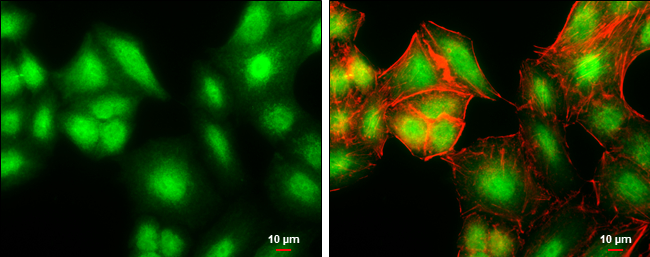
GADD153 antibody detects GADD153 protein at cytoplasm and nucleus by immunofluorescent analysis. Sample: A549 cells were fixed in 4% paraformaldehyde at RT for 15 min. Green: GADD153 protein stained by GADD153 antibody (GTX109226) diluted at 1:200. Red: phalloidin, a cytoskeleton marker, diluted at 1:50. Scale bar = 10 μm.
GADD153 antibody
GTX109226
ApplicationsImmunoFluorescence, Western Blot, ImmunoCytoChemistry
Product group Antibodies
ReactivityHuman, Mouse
TargetDDIT3
Overview
- SupplierGeneTex
- Product NameGADD153 antibody
- Delivery Days Customer9
- Application Supplier NoteWB: 1:500-1:3000. ICC/IF: 1:100-1:1000. *Optimal dilutions/concentrations should be determined by the researcher.Not tested in other applications.
- ApplicationsImmunoFluorescence, Western Blot, ImmunoCytoChemistry
- CertificationResearch Use Only
- ClonalityPolyclonal
- Concentration1 mg/ml
- ConjugateUnconjugated
- Gene ID1649
- Target nameDDIT3
- Target descriptionDNA damage inducible transcript 3
- Target synonymsAltDDIT3, C/EBPzeta, CEBPZ, CHOP, CHOP-10, CHOP10, GADD153, DNA damage-inducible transcript 3 protein, C/EBP zeta, CCAAT/enhancer-binding protein homologous protein, alternative DDIT3 protein, c/EBP-homologous protein 10, growth arrest and DNA damage-inducible protein GADD153
- HostRabbit
- IsotypeIgG
- Protein IDP35638
- Protein NameDNA damage-inducible transcript 3 protein
- Scientific DescriptionThis gene encodes a member of the CCAAT/enhancer-binding protein (C/EBP) family of transcription factors. The protein functions as a dominant-negative inhibitor by forming heterodimers with other C/EBP members, such as C/EBP and LAP (liver activator protein), and preventing their DNA binding activity. The protein is implicated in adipogenesis and erythropoiesis, is activated by endoplasmic reticulum stress, and promotes apoptosis. Fusion of this gene and FUS on chromosome 16 or EWSR1 on chromosome 22 induced by translocation generates chimeric proteins in myxoid liposarcomas or Ewing sarcoma. Multiple alternatively spliced transcript variants encoding two isoforms with different length have been identified. [provided by RefSeq]
- ReactivityHuman, Mouse
- Storage Instruction-20°C or -80°C,2°C to 8°C
- UNSPSC41116161

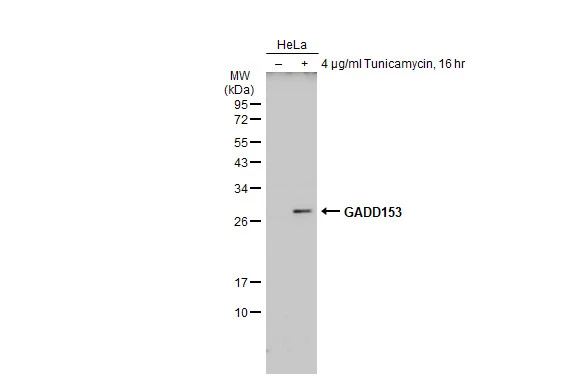
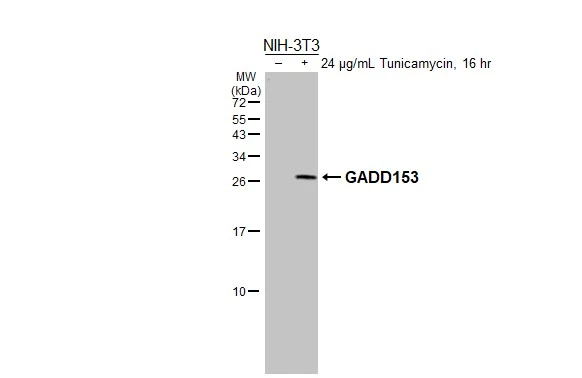


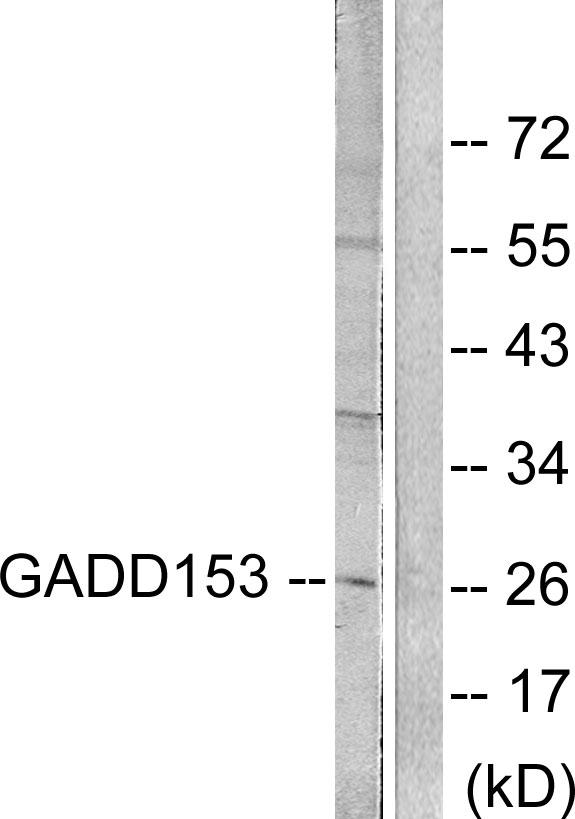


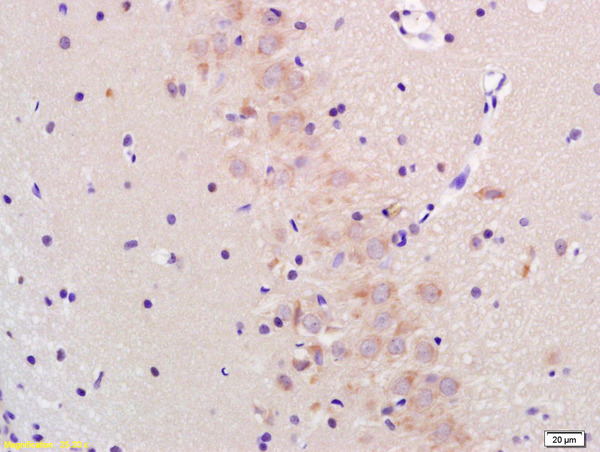

![GADD153 antibody [HL2262] detects GADD153 protein at cytoplasm and nucleus by immunofluorescent analysis. Sample: Mock and treated HeLa cells were fixed in 4% paraformaldehyde at RT for 15 min. Green: GADD153 stained by GADD153 antibody [HL2262] (GTX638314) diluted at 1:500. Blue: Fluoroshield with DAPI (GTX30920).](https://www.genetex.com/upload/website/prouct_img/normal/GTX638314/GTX638314_T-44970_20230421_ICC_IF_treatment_Tunicamycin_23050918_890.webp)